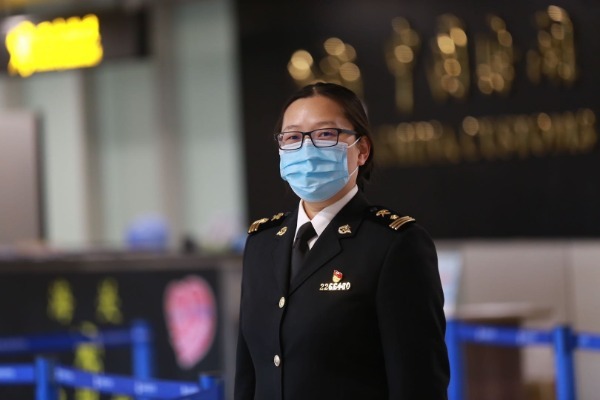Civil Aviation Administration of China: Power banks without 3C certification or recalled models banned on domestic flights
To ensure the safety of aviation operations, the Civil Aviation Administration of China has issued an urgent notice. Starting June 28, passengers are prohibited from carrying power banks that lack a 3C certification label, have unclear 3C labeling, or belong to recalled models or batches on domestic flights. (For details, please visit the official website of the State Administration for Market Regulation's Defective Product Recall Technical Center at www.samrdprc.org.cn/xfpzh/xfpgnzh)
Pudong Airport and Hongqiao Airport will enforce the requirements of this notice to ensure passenger safety. We kindly ask all passengers to comply with this notice by carefully checking the certification label, brand, and model of your power banks before traveling. Please do not bring non-compliant power banks on board. Remove your power bank before security checks to prevent travel delays.
Thank you for your understanding and cooperation.

Customs officer Song Dan at Shanghai's Pudong International Airport is named a role model for her contributions to the country's fight against COVID-19.[Photo provided to China Daily]
A transportation hub such as an airport can easily become a hotspot for virus transmission during an epidemic.
For this reason, putting in place comprehensive virus prevention and control measures at such a venue is of the utmost priority during an epidemic.
At the heart of the efforts to implement these measures at Shanghai's Pudong International Airport is Song Dan.
As a Customs officer at the airport, Song has played a critical role in developing the operational flow chart of boarding and quarantine procedures and ensuring that quarantine personnel are adept in their roles.
She was also responsible for designing the cleaning and disinfection processes, overseeing the management of prevention and control supplies, and looking after the safety and welfare of airport staff.
"Faced with the epidemic, we should give priority to boarding procedures and quarantine processes, including the measurement of temperatures of each passenger, performing epidemiological investigation and, if necessary, sending passengers directly to the hospital," she says.
One of the biggest challenges faced during the early stages of the epidemic, Song says, was a shortage of front-line workers-she had only nine people who could board and check flights. On its busiest day, the team had to check 120 flights.
"I remember that on the third day of the Chinese New Year, everyone was exhausted by the time we quarantined the 97th plane of the day. I saw a female colleague wiping her tears secretly before continuing to climb the gangway to board the plane," Song says.
Song adds that the shortage of manpower also meant that her staff had to work 48-hour shifts, which offered little chance for sleep.
"The longest I worked at a stretch was three days. After working for more than 60 hours, I felt that my brain was no longer working. When my superior told me to go home to get some rest, I even forgot where I lived," she says.
By the end of August, Song and her colleagues had boarded 23,000 quarantined flights since the outbreak and checked more than 2.3 million inbound and outbound passengers.
While her work was at times unforgiving, it was also rewarding. Song recalls the time when she boarded a plane filled with young foreign students.
"When we were welcoming them with a small national flag, the children got very excited, and some even bowed to us and expressed their gratitude," she says.
Song says that while the pandemic is still affecting many countries, people in China can feel more assured.
"We have a very strict closed-loop management for the prevention and control of the input of overseas epidemic cases. In addition to routine medical inspections and health declarations, we have also analyzed the data from Customs, airlines and the State immigration administration through big data. This allows us to accurately control and quarantine groups in advance," she says.
Song is not the only outstanding individual to have made significant contributions to the nation's efforts to control the epidemic. She was among the 1,499 people from various cities and provinces in the nation who were commended as role models for their contributions to the country's fight against COVID-19 during a meeting held in Beijing on Sept 8.
(Source: chindaily.com.cn)